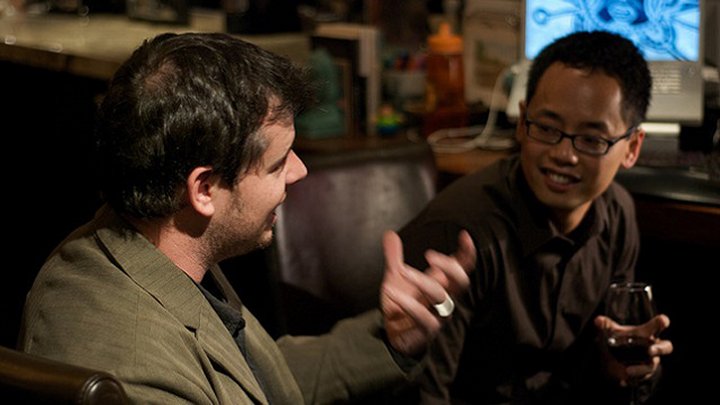When you’re getting to know someone, you are also letting them get to know you better. The best way to do this is to be open, honest, find common ground and communicate with each other as you build a relationship without judgment. Especially in the beginning, it’s best to avoid conversations which can lead to disagreement or conflict.
Not being quick to assume, accuse or judge someone can go a long way in building rapport, so just don’t go there. If you have some pressing thought, idea or question that might be offensive, wait until you have built rapport and get to know each other better. This will also help you to have a better idea about how to approach the idea or question in a way that is respectful of his or her personality and communication style.
If I am getting to know you as a person, you are no threat to me. I am investing my efforts to get to know you better, without you having to prove yourself worthy of my attention or friendship. As I get to know you better, I learn whether I can trust you. If I can, trust develops, and you move closer to my inner circle of relationships.
Invite those you are getting to know to ask questions if anything is unclear about what you are talking about, especially if it is in regard to you or the kind of person that you are. It is common for someone who is harboring an unspoken question to file it away as if it was asked but left unanswered. This figures into their continuum of understanding or judging who you are as a person.
There is no blame associated with this process, it is just how the human brain works. By being open and inviting invitations to query you, the unspoken questions may be addressed and clarified.
When I’m getting to know someone, I like to add value to the conversation by giving them something to think about, challenge them (without overwhelming them) or make them feel a little better than before we exchanged ideas. If it’s appropriate, I might suggest a little homework assignment and invite them to get back to me on how it turned out.
You never know which acquaintances might grow and develop into lifelong friends, so leave the door open for them to reconnect with you again. It might be a good idea to set a date and time for reconnecting at the end of this conversational exchange.
If it sounds like they are uncertain about their schedule or may not feel as though this might be more than what they bargained for, not to worry. Make sure you arm them with a manner by which you can be contacted in the future, if they are feeling like they might like to reconnect or get to know you better later, at a time when it is more convenient for them.
If you’ve been able to garner some valuable insight or nugget of truth from your interaction with this person, by all means, tell him or her. Every interaction between two people has the potential for enlightenment, acknowledging such opens the door for even more. Everyone feels good about lending value to another’s life, even if only in small, otherwise insignificant ways.
So, be on the lookout for something positive in each interaction and chances are you will find something beneficial, helpful, or a thought or idea which raises your enthusiasm or joy.
Take advantage of the digital tools you possess. Exchange email addresses or offer to hook up on social media. This helps to maintain contact or allow this person to reach out to you when the timing is better for him or her.
Not all the people you meet will be a good match for developing a deeper relationship with. In fact, some can even be disadvantageous or harmful. If the new person you’ve met becomes a drain on your resources, then know when to move along.
Some people can be like a black hole of negative energy, draining your and others whenever they are around. There is no judgment here because it’s just the way they are. You cannot change an energy vampire or prevent them from draining your energy but you must find ways to isolate yourself enough so as to not let them drain you and move on.
If you are sensitive and aware enough to identify this person as a potential energy drain at the get-go, there is no need to offer an opportunity to reconnect at a later date. Be polite, trust your instincts and proceed appropriately.
Be gentle with those you choose to move on and away from. Honor them and protect yourself. Be mindful of who they are as a person and have empathy for their plight without exposing yourself too much or offending them.
Many an offended person with low self-esteem has taken to the Internet with false accusations, negative reviews, and public forum bad-mouthing in an attempt to seek revenge for having their feelings hurt.
This is bound to happen occasionally but being mindful and cautious can help you in taking the high road to living a better life, while honoring others who are only doing the best they can with what they have, just like us.




